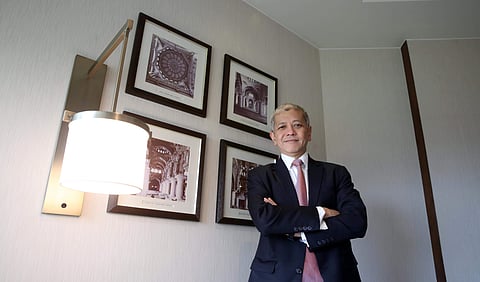

Have you ever wondered what an education in Public Policy can do for you? Prof Danny Quah, Vice Dean (Academic Affairs) at Lee Kuan Yew School of Public Policy, Singapore has the answer. The professor recently visited India to attend a few conferences in New Delhi and we caught up with the Harvard University alum to chat about how Public Policy provides answers to tackle the world’s challenges. Excerpts:
Would you encourage students to take up Public Policy as a career?
I would encourage a student to take up Public Policy as a career if they have the knack to solve the complexities of the world. It’s one way to do good in the world, to better the lives of those around you. There’s also an intellectual satisfaction in understanding why the things we do have the effects they do. So, the academic study of Public Policy is itself also a career.
How much value does it offer in terms of solving complex real-world problems?
I think Public Policy is one of the few disciplines that acknowledges a wide range of tools to attack real-world problems. There’s always the possibility that complex real-world problems are always more intricate and lead to unintended outcomes when anyone attempts to resolve such problems. But at the same time, doing nothing is itself an offer of policy. What Public Policy training gives someone is an armoury of tools to analyse the challenges around them.
What are the careers in Public Policy?
Many people will give an obvious answer like being a public servant or working in civil services, but there are also a few unexpected answers to this, for instance, social entrepreneurship. It is an emerging career trajectory that draws on these skill sets and is a genuine career in Public Policy.
Why is China being aggressive with its neighbours?
China being aggressive is a subject of diplomacy. At the same time, there is aggressiveness from other countries which share borders with China. The reports that have been released, in isolation, projects China as being over aggressive with its neighbours. But one cannot ignore the fact that India and China are collaborating on one of the biggest projects including BRICS Bank. India and China are the new world leaders in renewing energy.
Can Asia lead the world?
World leadership in the sense of the community of nations doesn’t mean the same thing as corporate, political or thought leadership. Asia might be diverse and different, yet have internal challenges. But all parts of the world do. What is crucial when leading the world in the 21st century? All that might mean is to be the one that calls the meetings. Asia can certainly do that and a whole lot more. It has, in my view, the economic and political legitimacy to do so.
What according to you are the tenets of good governance?
Transparency, meritocracy, open debate and information sharing, the appropriate place for expert analysis and constant re-examination of assumptions are tenets of good governance according to me.
